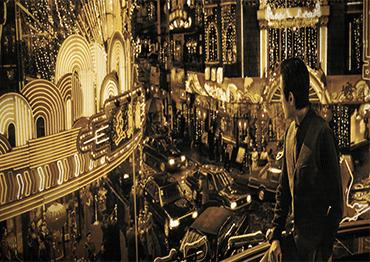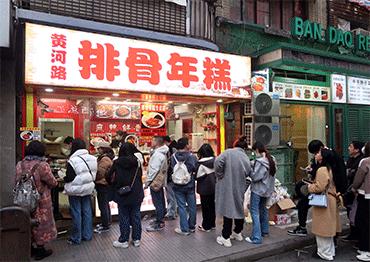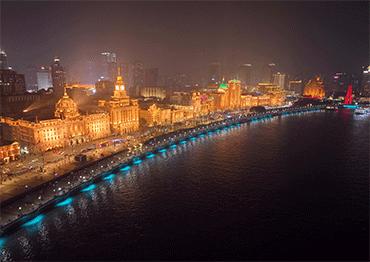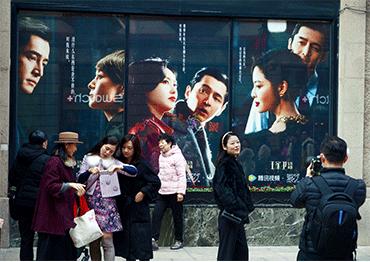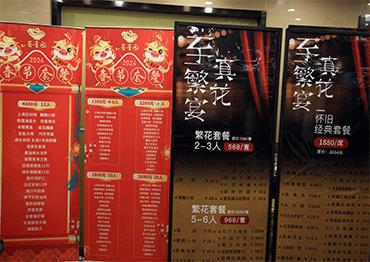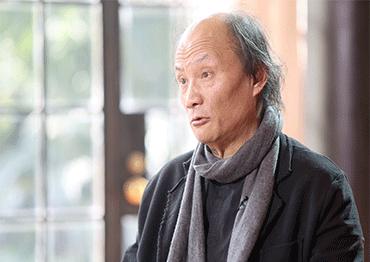Viewers have described Blossoms Shanghai as a “noisy” show, as its characters are always talking. Often, the chatter occurs during dinner parties. Whether in the multi-story Zhizhen Garden restaurant or the low-key Night Tokyo bistro, characters rattle on constantly.
“Chinese people love to talk during dinner parties. Lots of vivid conversations, drama and scenes happen during dinner parties that fade to silence when dinner is over,” Jin Yucheng told NewsChina.
Jin called dinner parties “forums for interesting conversation.” He mused that if a writer recorded conversations in a restaurant for three hours a night and compiled them into a novel, it would be a masterpiece.
“Literature records the details of life. The Golden Lotus (a satirical Chinese novel from the early 17th century), for instance, records how people of the time interacted, ate, slept, chatted and quarreled. Without this book, we wouldn’t know the vivid lives of people in the late Ming Dynasty (1368-1644). That’s the very function of literature,” Jin said.
Jin called Blossoms Shanghai a “novel of cacophony.” He has characters freely speak their minds, which they do. A lot. Wong Kar-wai stays faithful to this feature of the novel. In many scenes, the rapid-fire dialogue is delivered over food, snacks and drinks.
Jin seldom writes what characters are thinking or about the larger socioeconomic context, believing that the “minute details of daily life of ordinary people are what create modern history.”
In contrast to all the conversing, the Shanghainese word buxiang (literally meaning “silence”) appears more than 1,000 times in the novel.
But Wong feels this translation falls short. “It’s more like ‘leaving blank space.’ Anything I don’t want to say or I can’t say, I keep silent. It’s a creative approach – I only say what I want to say, what I can say and what I can say well. Buxiang is embedded in the code of Jin Yucheng’s writing, and also the very code of my adaptation,” Wong said.
However, the TV series fills in other blanks left in Jin’s novel. For example, Wong explores A Bao’s ascent to the upper class, detailing his business dealings and, more importantly, stock trades. The drama of Shanghai’s stock market in the 90s inspired many previous bestselling novels, such as Men and Women in the Stock Market (1999) and Joys and Sorrows in the Stock Market (2000) by Ying Jianzhong.
In Wong’s adaptation, music drives the narrative. The pop-heavy soundtrack of 80s and 90s hits not only offer insight into the characters but also stoke the nostalgia that has been crucial to the show’s success.
Their licensing fees, however, were not gotten for a song. According to industry insiders, the show’s 57 pop tracks cost an estimated 10 million yuan (US$1.4m).
To portray the complicated relationship between A Bao and Night Tokyo bistro’s manager Ling Zi, the show cues in “Suddenly a Love Story,” the theme from Japanese TV show Tokyo Love Story (1991), which was hugely popular in East Asia. The unfulfilled romance in the Japanese drama mirrors the relationship of A Bao and Ling Zi.
Other tracks, such as “My Future is not a Dream” from Taiwanese singer Tom Chang and “Glorious Days” from Hong Kong band Beyond, lyrically epitomize the dreams, ideals and possibilities of 90s China. In particular, the Hokkien folk song “To Win You Have to Fight” (Ai Piah Cia Eh Ya) was a favorite among young entrepreneurs at the time.
“The soundtrack Wong Kar-wai chose for Blossoms Shanghai is quite diverse, ranging from classical and rock to pop, folk opera and revolutionary songs. He also chose music from different regions of the world,” music critic Peng Peng told NewsChina, “Tracks from across the world converge in a TV show to provide a sonic portrait of 90s Shanghai, a fertile land where the latest trends, thoughts and cultures all rocked together.”
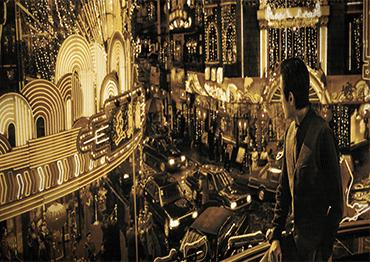
 Old Version
Old Version
